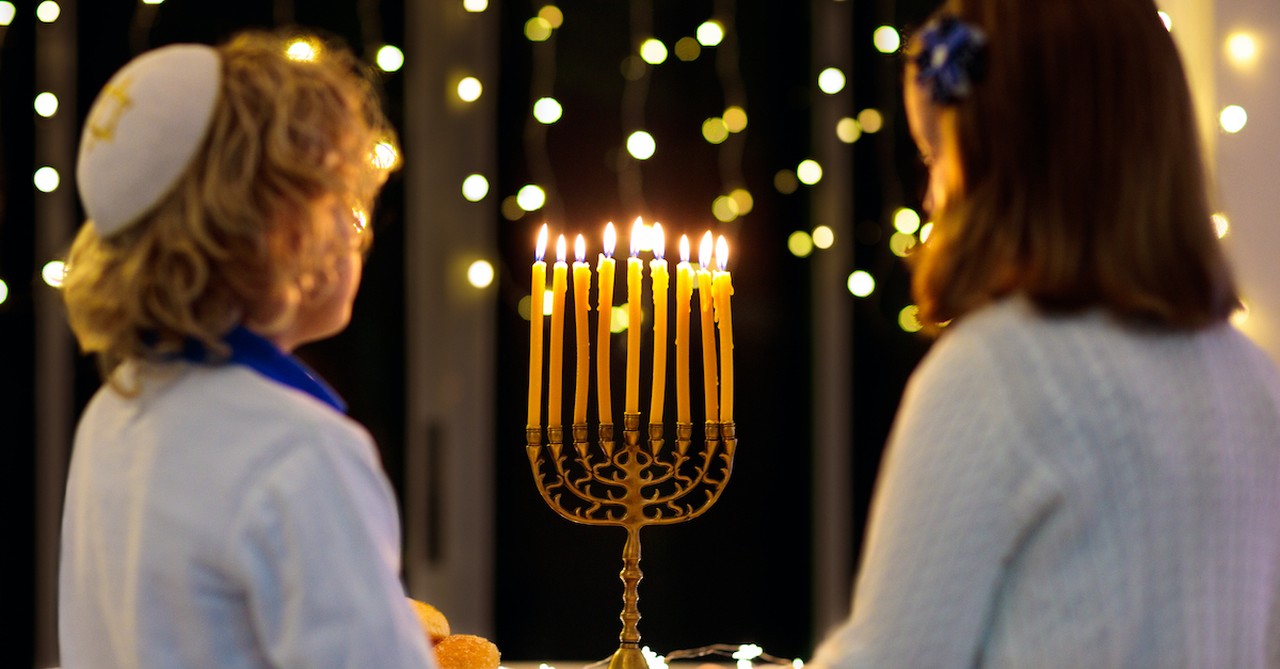6 Ways an Interfaith Marriage Will Become a Challenge

Rahab and Salmon. Ruth and Boaz. Deliah and Samson. Esther and King Ahasuerus. Asenath and Joesph. And many others are prime examples of interfaith marriages found throughout Scripture. Not only that, but these unions were ordained and blessed by God.
An interfaith marriage is the joining of a man and woman of different faiths and religious backgrounds. This is not the same as an interdenominational marriage, as all Christian denominations serve and honor Jesus Christ as Lord. Rather, an interfaith union (also known as interreligious marriage or mixed marriage) takes place between a Christian and a non-Christian, such as a Jew, Muslim, Buddhist, or atheist.
2 Corinthians 6:14 warns believers to tread lightly here and to proceed into a marriage that is not equally yoked with caution. Paul warns the church of Corinth that an interfaith marriage will come with resistance and hardships and that there will most likely be an imbalance. He gives the imagery of different livestock being "yoked" together, trying to pull in the same direction in unison. It's not easily done. This spiritual inequality in a marriage is sure to bring forth the same hindrance along with a unique set of challenges.
God knew an interfaith marriage would prove difficult, which is why He commanded the Israelites not to intermarry (Genesis 24:3-4, Deuteronomy 23:2). Even still, because God loves all people and provides ways for people to come into an everlasting relationship with Him, we see beautiful depictions of interfaith marriages weaved throughout Scripture. Yes, these couples faced many setbacks and struggles, but they also conquered all odds through faith conversions and bold acts that came from their confidence in the Lord.
Take Ruth, the Moabite woman, for example. This woman married Naomi's Jewish son and then, later, Boaz. Ruth's newfound faith and trust in Naomi allowed her to become a woman known for her loyalty (Ruth 1:3-4, Ruth 1:16, Ruth 4:13)! Then there was Boaz, a man known for his integrity, yet held his own complicated religious history (Matthew 1:5), being the son of Rahab. These stories show us that our past shouldn't define us and that God is full of mercy, giving way to create a beautiful remaking of our future.
The truth is that God brings two people together for His plan and purpose. He can always make a way for reconciliation, restoration, hope, and a new-fledged faith to emerge. However, it is prudent to discover the hardships and challenges that may come with such a union and how believers should earnestly seek God's will, placing their trust in His plan alone.
1. Pressure from Family and Friends

1. Pressure from Family and Friends
SLIDE 1 OF 7
There is no doubt that an interfaith couple will face some pushback from well-meaning family members and friends, especially if they were raised in a home that practiced their faith and lived out their religious customs and traditions. In many cases, this can feel like a slap in the face for a parent who has earnestly taught their child the way in which to go.
As believers, we must approach family and in-laws with compassion, sincerity, respect, and love (1 John 4:8). Choose to be an attentive listener while also setting healthy boundaries. If hurtful or untrue statements are made, seek to understand the reason behind the words and actions expressed; many times, it is based on hurt, shame, or the feeling of betrayal.
When we approach family members and friends in love and respect, we demonstrate the beautiful kind of love of our God. An unbiased love that calls upon all people to get to know Him (1 Timothy 4:2-7).
2. Deciding How to Raise Children

2. Deciding How to Raise Children
SLIDE 2 OF 7
This is a big challenge. Maybe even the biggest one! While views may differ a bit, the importance of family runs fairly deep in most cultures and religions. While there are those natural ground rules in obedience to keep those little darlings safe and to, one day, be productive citizens, when it comes to what deity to teach them and what to believe about the purpose of this life, well, this is where things can get a bit muddy.
That's because we not only get emotionally and mentally invested in our children's lives, but our whole spiritual being gets invested, and we want to share what gives us hope and gives us peace. As believers, we want to explain to our children that their life has purpose and meaning (Romans 8:28) and that there is life beyond this one (John 17:3)! And even more than that, we want to know whole-heartedly that we will be together with them for eternity (1 John 2:25).
We must fervently pray for the salvation of our spouse and children. This is where believers can make a great impact for the kingdom of Christ and pray that God will open minds and soften hearts (Romans 10:1).
3. How to Celebrate Holidays

3. How to Celebrate Holidays
SLIDE 3 OF 7
As you may have guessed, major holidays will pose a problem. Granted, some holidays will bring on more meaning than others, but it is wise to plan ahead to address and navigate these sacred and holy times respectfully. Of course, there is not a simple answer here, and once again, it can come with many emotional strings attached.
It's important to note that an interfaith couple should build time to discuss the holidays that must take precedence and the ones they wish to celebrate. Each needs to allow ample space to honor and respect the other spouse's wishes. Healthy boundaries always need to set the tone here with love while allowing your family to partake in religious traditions that can cultivate faith.
During these times, believers can read stories in the Bible about Christ's birth, death, and resurrection, all the while sharing how Jesus' life has impacted their own lives. Personal testimonies are a great way to open up about faith, all while planting a seed (Mark 11:24).
Photo credit: ©GettyImages/FamVeld
4. May Lead to Arguments

4. May Lead to Arguments
SLIDE 4 OF 7
Most of the big decisions and choices we make in this life are based on our religious beliefs. As Christ-followers, our decisions are to be in sync with God's will and way for our lives (Psalm 143:10). We know that this life is about honoring and glorifying God, so as faithful followers, we try to follow His lead and direction, knowing His plans are good (Proverbs 3:5-6).
In a Christian marriage, God is the head, leading and directing a husband and wife as they seek Him through His Word and prayer together. However, in an interfaith marriage, a believer may choose to heed the direction of God, while their spouse may choose to listen to another deity or their own will. This will fuel the fire on topics surrounding major decisions like when to start a family, where to live, career paths, and even where to go to church.
While arguments will arise in every marriage, they may be more intense and controversial when certain topics or issues arise in a marriage that holds different faiths and religious beliefs. Keeping in mind that tensions may rise, a believer may be able to win over the heart of their unbelieving spouse simply by approaching heated situations with amicable peace, reverence, and harmony (1 Peter 3:1-2).
5. Less Hope for the Future

5. Less Hope for the Future
SLIDE 5 OF 7
As believers, we know where our hope for the future is found (Jeremiah 29:11). We hold on to the hope in the Lord for our future plans in this life and the life beyond this one (John 3:16). However, when a spouse doesn't have that same life perspective or is holding on to a different view of hope, it can be discouraging as well as disheartening.
As believers, we must remember to have hope that God loves us and that our marriage and future are still in His hands. Just as He did for Samson, Ruth, Joeseph, Esther, and countless others, our God can make way for any marriage to prosper and be rich in love, fulfilling a greater purpose than we may ever know (Proverbs 19:21).
Seeing our loved ones beyond this life is especially crucial to us as Christ-followers, and we should hold on to the precious promise in 1 Thessalonians 4:13-18. Yet, that should also motivate us to mourn for those who do not fully know Him, convicting us to live out our faith as God leads, all the while praying for God's mercy and grace.
6. Sadly, it Is More Prone to Divorce

6. Sadly, it Is More Prone to Divorce
SLIDE 6 OF 7
Currently, over 40% of marriages in America are interfaith, and that percentage is only said to be growing! That means more and more couples are finding love outside of the Christian faith. The statistics surrounding an interfaith marriage are alarming and should bring about genuine concern because recent studies surprisingly indicate that interfaith marriages hold a 50% divorce rate!
Due to spiritual differences, the majority of interfaith couples choose not to partake in regular or consistent religious activities. Many choose not to go to a church at all; some opt to venture back and forth to the two different faith-based congregations, while others divide and get filled up spiritually on their own endeavors. This can lead to a disconnect as a couple and family.
These couples also claim to share similar values and rather than focusing on faith, they choose to focus on their love. However, a human's view on love and marriage will shift and change with the cultural tides, which can cause a rift in a marriage. Not to mention, human love is bound by emotions that can become corroded and jaded over time. Yet, God's view on marriage and love never fails, never changes, and always remains the same (Genesis 2:18, Ephesians 5:21-33, Hebrews 13:4). God sees marriage as a gift that is bound together through a covenant (Ecclesiastes 4:9-12).
God Is Still Good

God Is Still Good
SLIDE 7 OF 7
Unfortunately, many interfaith couples have little faith-based support, lack marital guidance, and cling to misconceptions about love, causing tensions to ensue and isolation to occur. But that doesn't mean it will befall a tragic fate! It does mean that interfaith marriages will be full of hardships and challenges, but God is still good. His faithfulness may come with glimmers of hope, growing one's faith, or making way to showcase His unfailing and purposeful love, providing a powerful testimony to share with others. How sweet is that?
Related: Are Interfaith Marriages "Okay?"
Photo credit: ©Unsplash/Jon Asato

Originally published January 22, 2026.






